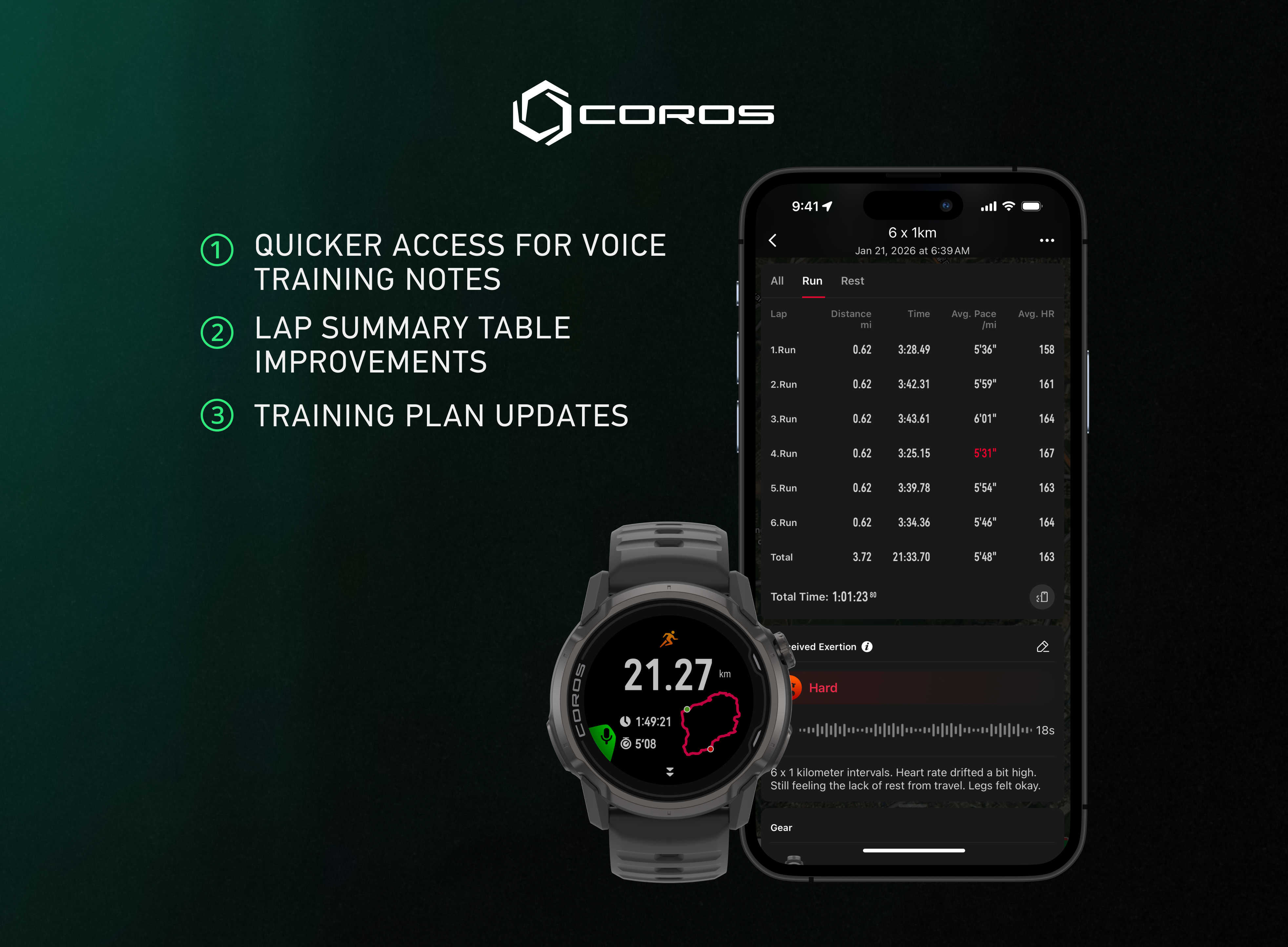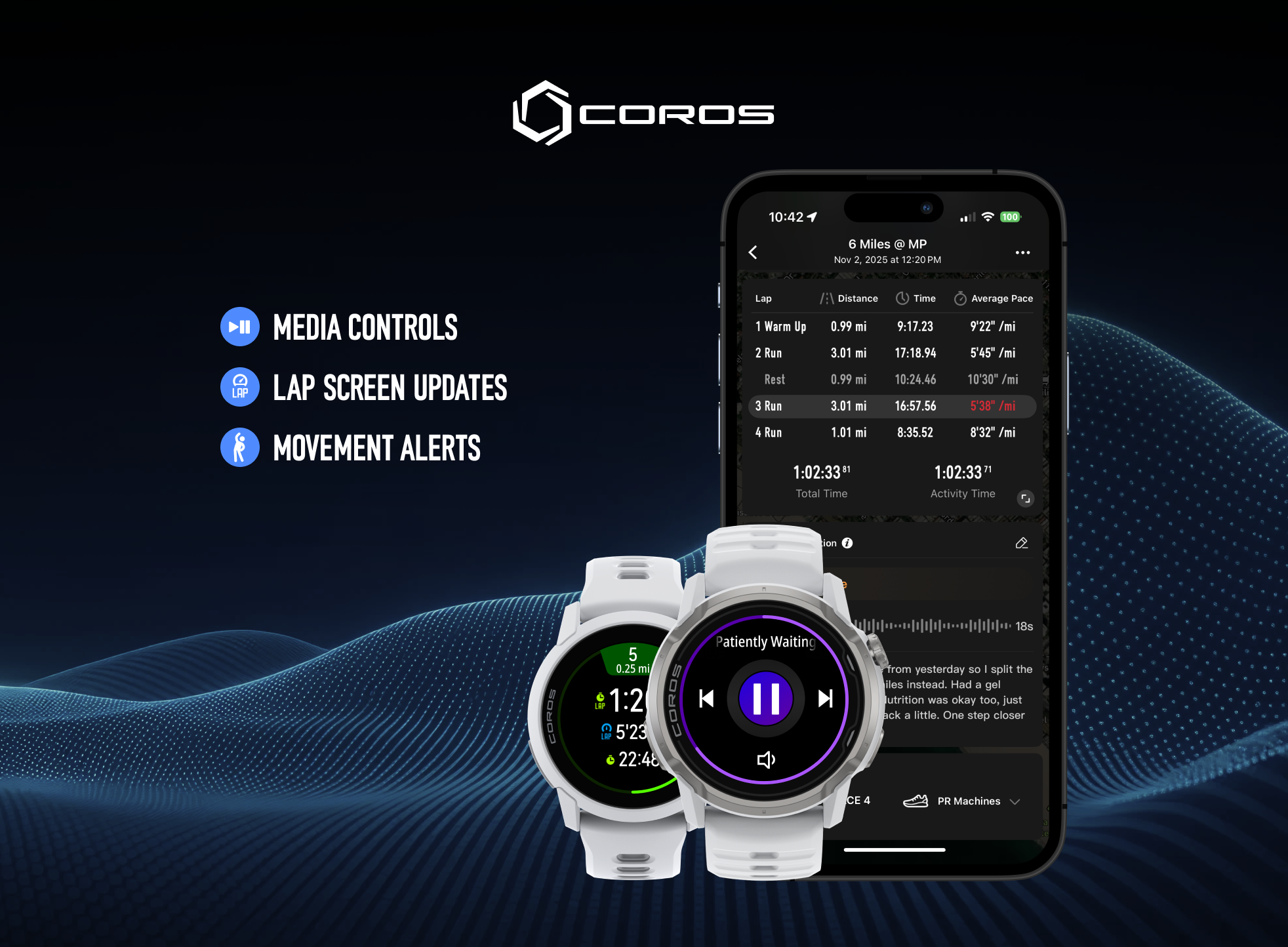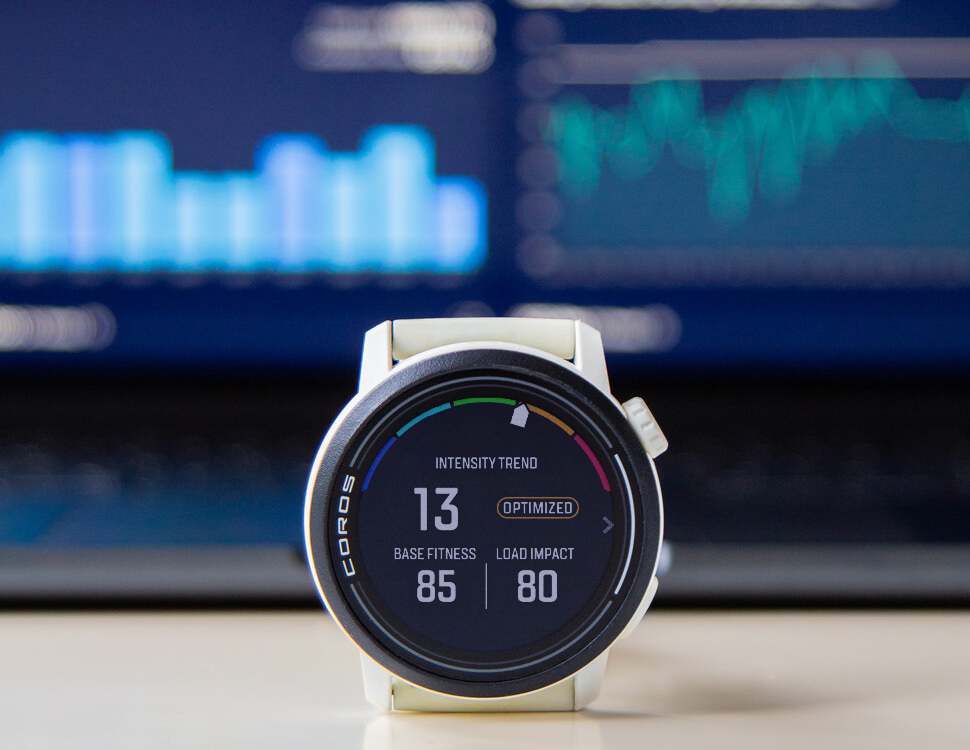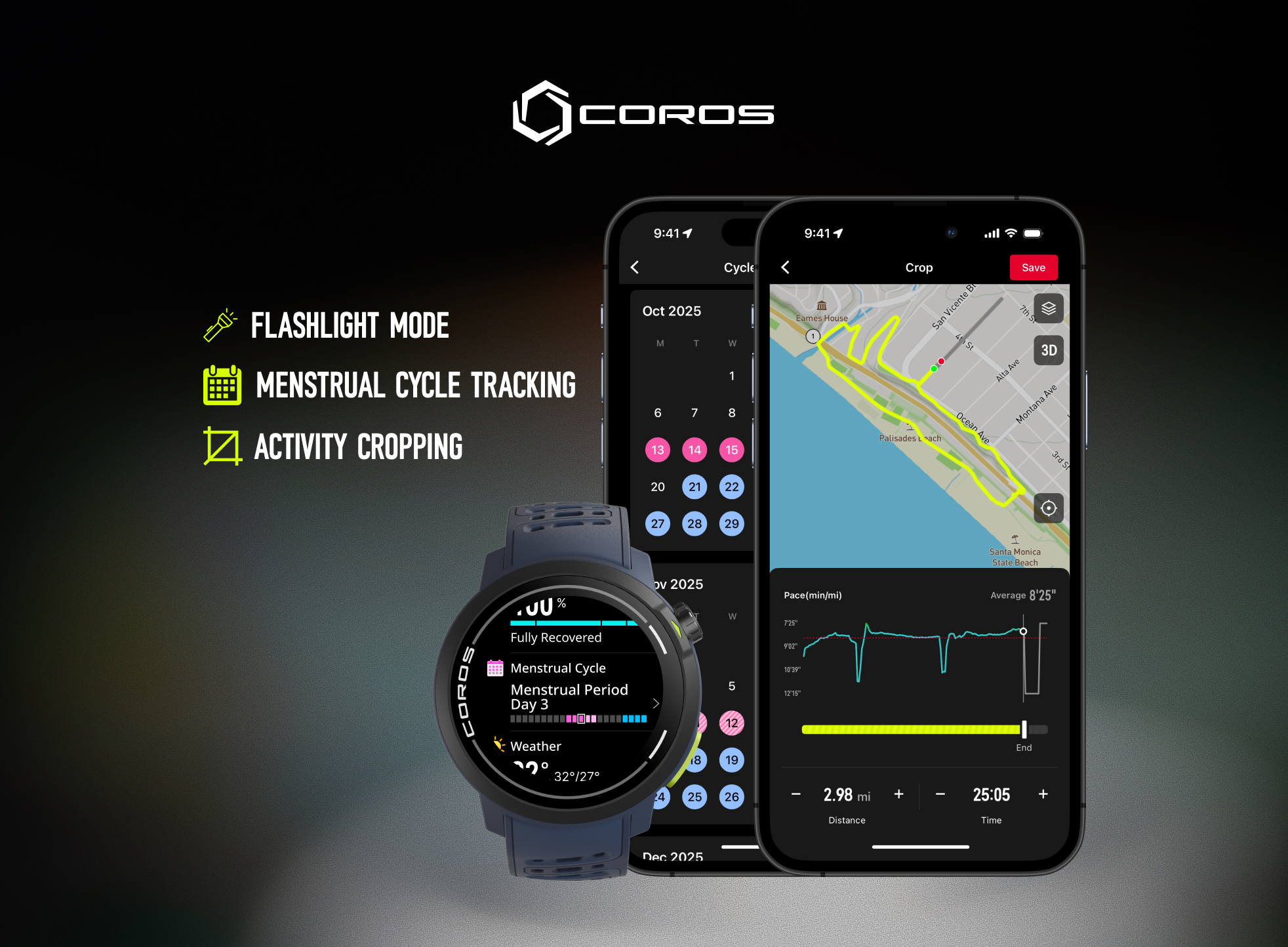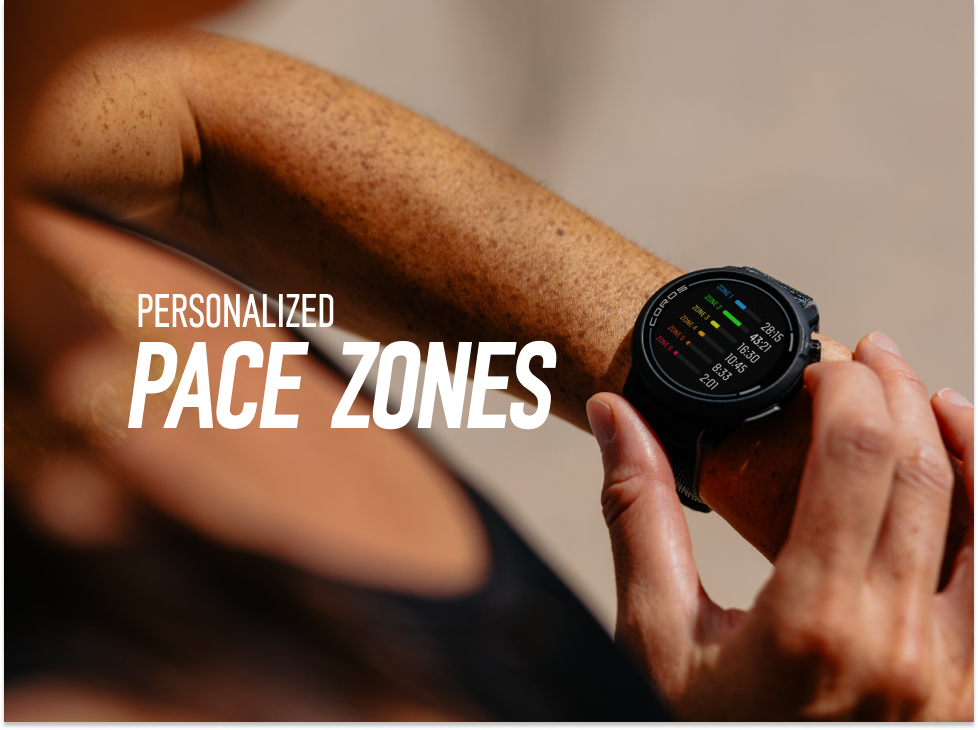Base Fitness is a key metric within the COROS Evolab software. It represents a rolling 42-day average of your training load, which is quantified by the stress your body experiences during each workout. While this value offers valuable day-to-day insights, its significance grows when it's integrated into a 6-week context. In this blog, we'll dive into how our professional athletes leverage their Base Fitness scores, drawing from data contributed by the top performers in the field!
How Do Pro Athletes Train With Base Fitness?
Below is data from a few of our professional athletes who compete on the track, roads, and trails. The graph illustrates their Base Fitness score at its lowest point and how it gradually increased during the peak of their respective seasons. These athletes are not consistently maintaining their high scores throughout the year, but rather increasing for specific events, and then allowing their body to recover.
| Athletes | Discipline | Base Fitness during off-season | Base Fitness during on-season | % increase in Base Fitness throughout the year |
| Kilian Jornet | Ultra | 113 | 249 | 120% |
| Emma Bates | Marathon | 84 | 228 | 171% |
| Camille Herron | Ultra | 139 | 261 | 88% |
| Colin Mickow | Marathon | 60 | 217 | 262% |
| Jonathan Albon | Ultra | 60 | 254 | 323% |
| Joe Keckler | Track & FIeld | 75 | 210 | 180% |
| Petter Engdahl | Ultra | 58 | 233 | 302% |
| Maite Maiora | Ultra | 148 | 227 | 53% |
| Ludovic Pommeret | Ultra | 174 | 293 | 68% |
| Manu Merillas | Ultra | 149 | 341 | 129% |
Drawbacks of Keeping a Consistent Base Fitness Score All Year Long:
- Overuse Injuries: Running frequently without adequate rest can lead to overuse injuries such as shin splints, stress fractures, and tendinitis.
- Burnout: Constant training without breaks can lead to mental and physical burnout. Over time, this burnout can result in reduced motivation and decreased performance.
- Plateauing Performance: Constantly pushing the body to its limits without adequate recovery can lead to performance plateaus.
- Chronic Fatigue: Overtraining without adequate rest can lead to chronic fatigue syndrome, characterized by persistent, unexplained fatigue, affecting daily functioning and quality of life.
Emma Bates - Case Study
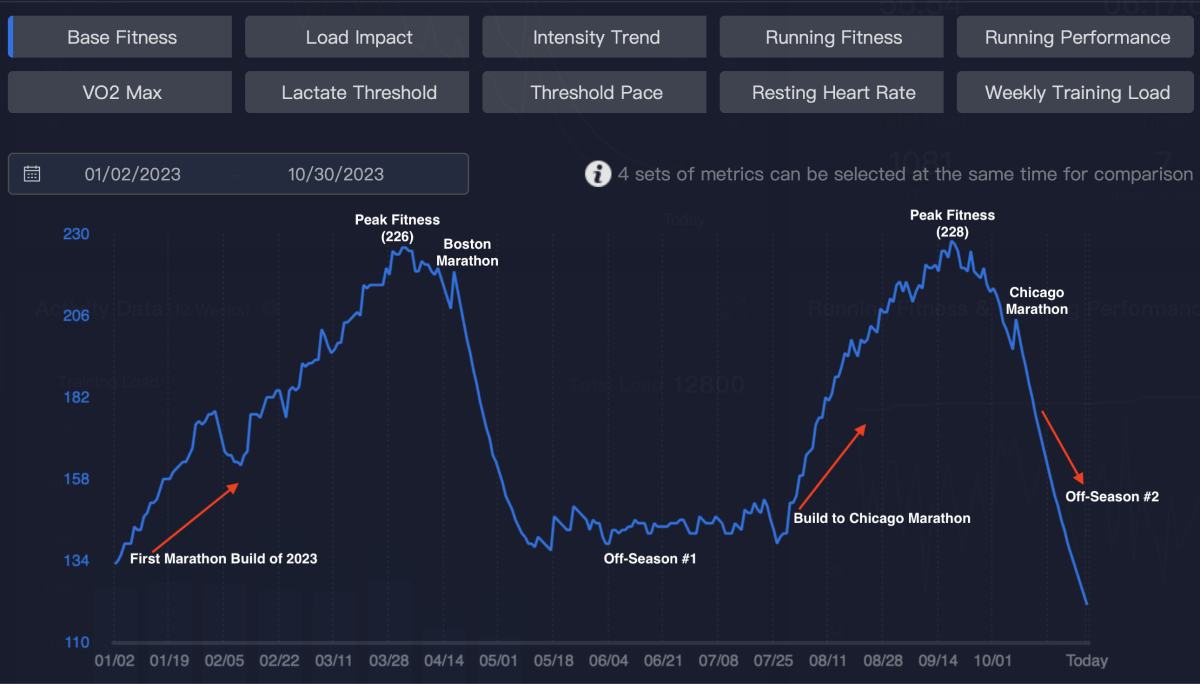
Emma Bate's Base Fitness from January through October.
Above is Emma Bate's Base Fitness from her Training Hub account. Emma raced in two marathons in 2023, Boston in April and Chicago in October.
Some Key Takeaways from Emma's Training this year include:
- Prior to her training buildup for Boston in 2023, her score was 134. As her training advanced, we observed a gradual rise in her score.
- Before the Boston race, her score peaked at 226. During her rest and tapering period leading up to the race, the score gradually decreased.
- Following the Boston Marathon, Emma took several days off and then transitioned to light running before gearing up for the Chicago Marathon. Her score decreased to 139 during this period, indicating her efforts to maintain some level of fitness. Her training intensity significantly increased in August, providing her with three months of targeted marathon preparation.
- Emma consistently raised her score each week, reaching 228 for the Chicago Marathon build before easing off her training.
- Following the decline in Base Fitness post-Chicago, it's evident that Emma took multiple days off to recover, currently resting at 124. This strategic break allows her to recover effectively before embarking on her journey toward the 2024 Olympic Trials.
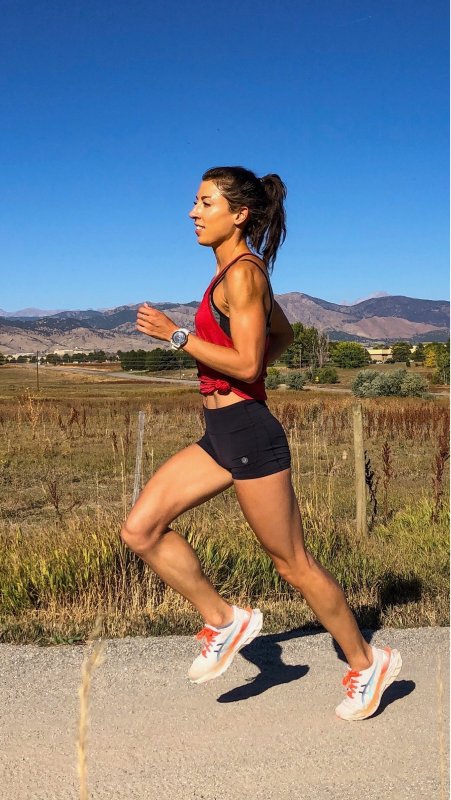
Emma Bates
Where to Find Your Base Fitness
You do not need to be a professional to find the Base Fitness metric useful. To locate your personal Base Fitness Score, log into your Training Hub. Go to EvoLab Metrics and view your Training Status. We suggest monitoring your Base Fitness (blue line) weekly to ensure you are on track with your training. When looking at Base Fitness, it is important to keep in mind the numbers are not what is most important, it is the peaks (when your score is trending up) and valleys (when your score is trending down) that matter in your training.
COROS Coaches Tips for Base Fitness
It's important to understand that while professional athletes have impressive numbers, our intention is to highlight their training trends rather than their high Base Fitness scores. You can gain a lot of valuable information for how athletes build and reduce fitness at different times of the year. You should not aim to match a professional athlete's score unless you have a long history of training success.
- We reccomend building 2-6 points per week during build up weeks.
- When training for an event, you can build your Base Fitness score by tailoring your intensity/volume towards the race demands. An example of this is running in Zone 1 and increasing your weekly training volume to build fitness for an ultra marathon or focusing on your goal marathon pace to improve your marathon time.
- When you are following a training plan, the Calendar section of your Training Hub allows you to see a predicted Base Fitness score, allowing you to train more efficiently.
- When tapering for an event, aim for a slight decrease in Base Fitness to ensure you are recovering properly and reach peak performance on race day.
- If your Base Fitness is maintaining constantly, think back on your strategy to allow your body to build (peaks) and recovery (valleys). Email our coaches for further insights!
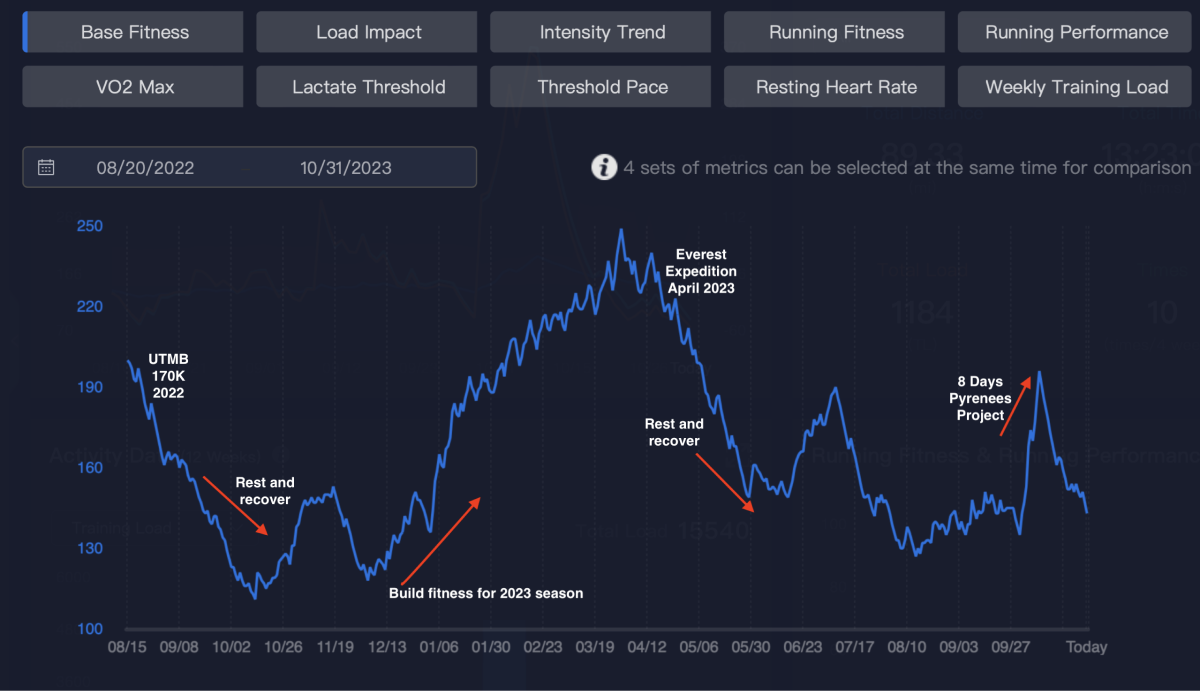
Kilian Jornet's Base Fitness Chart September 2022 thhrough October 2023.

/filters:quality(90)/fit-in/970x750/coros-web-faq/upload/images/badaea839ebf640cb56337bb9ce4bb0f.png)
